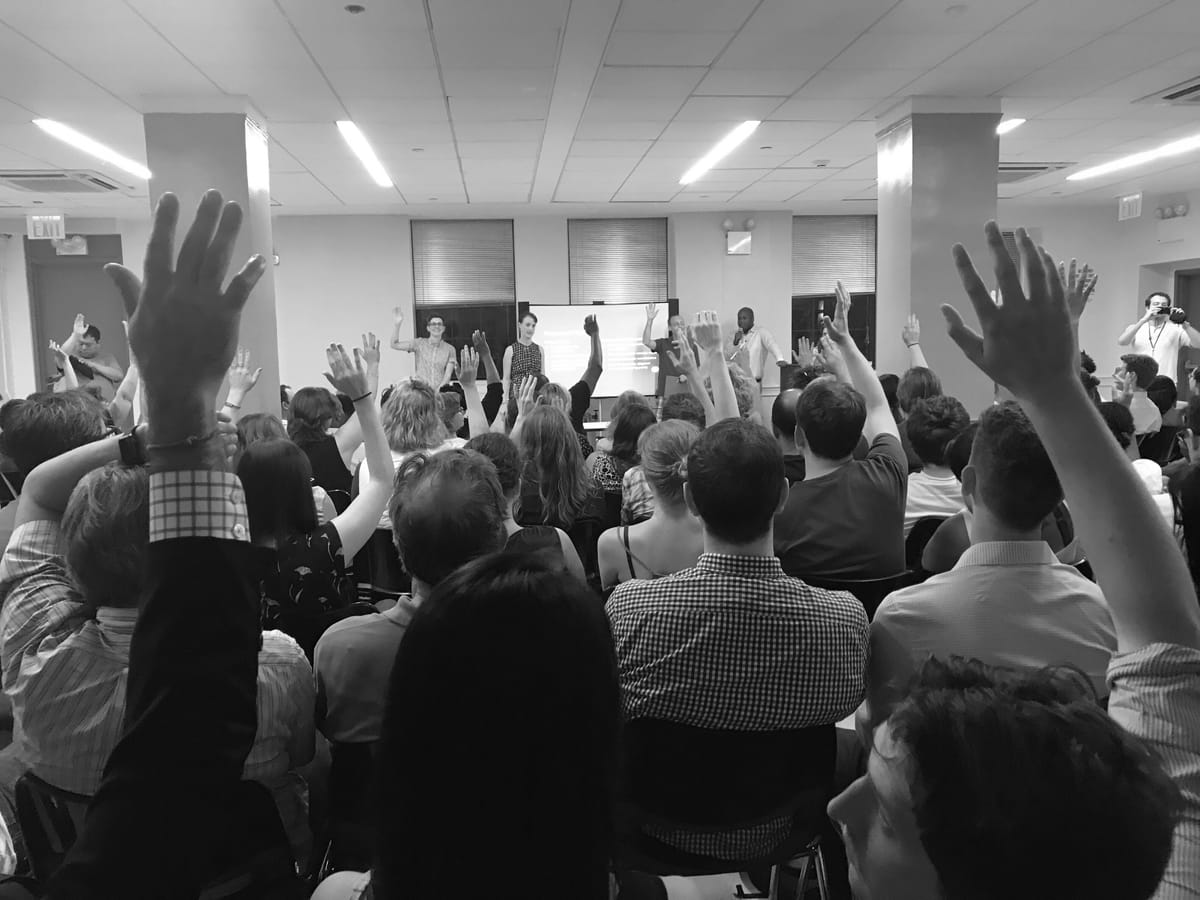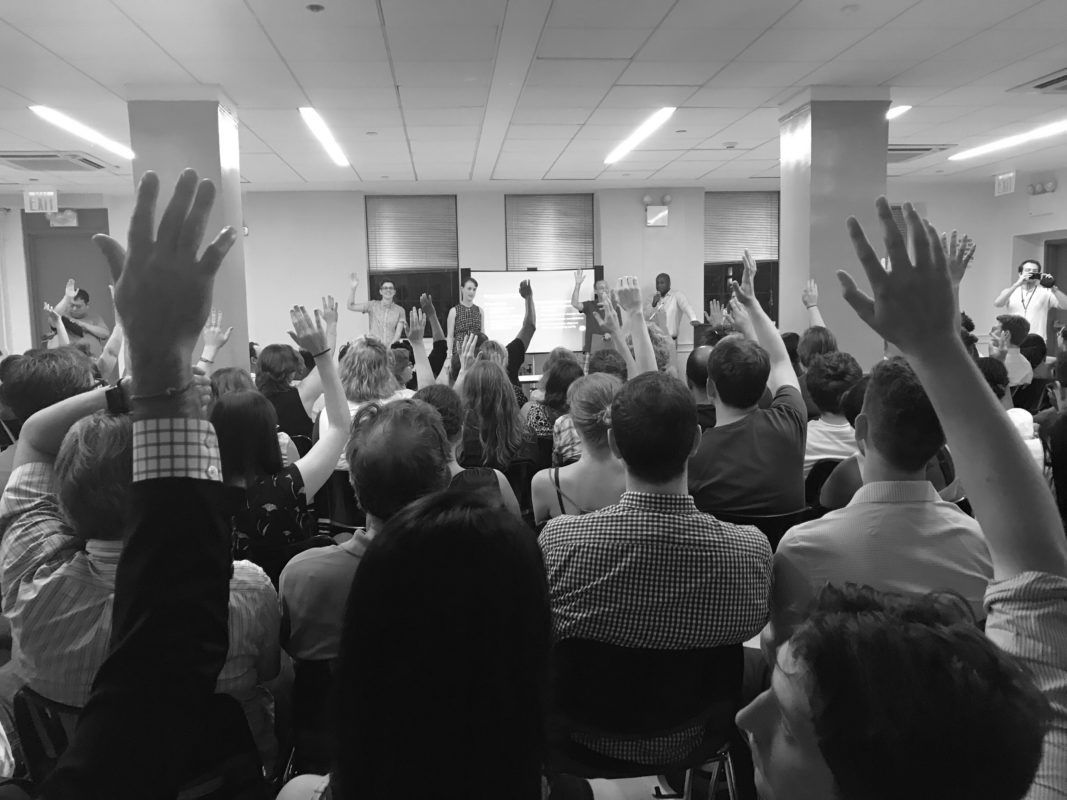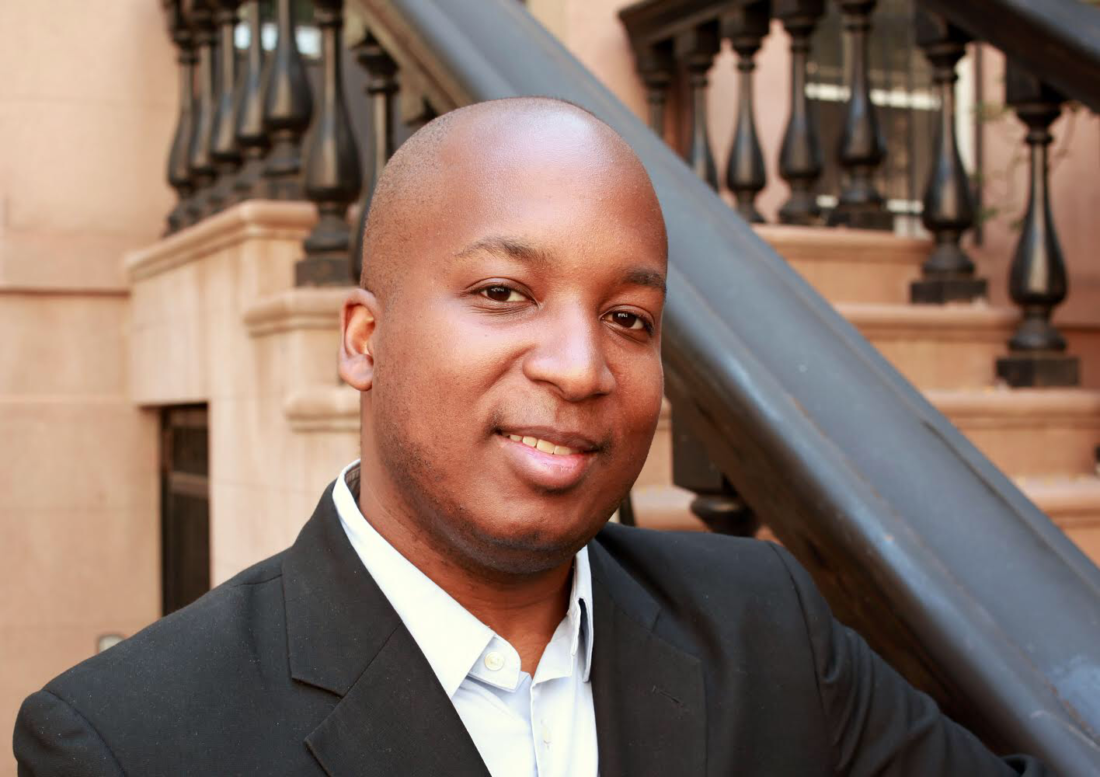Ranked-Choice Voting More ‘Democratic’ Than Current System, Progressive Brooklyn Groups Says


In November voters will have the opportunity to weigh in on 19 proposed changes to the city charter, including one that, if approved, would alter how the city’s officials are elected.
The City Council’s Charter Revision Commission—not to be confused with the mayor’s 2018 commission— last week finalized language on November’s ballot measures. Among those at stake in the fall is ranked-choice voting for the city’s primary and special elections.
The new system would allow voters to rank as many of five candidates in order of preference, rather than just picking one. The candidate who receives the majority of votes still wins, but if no candidate reaches more than 50 percent of the first-choice votes, the process is as follows. The last-place candidate is eliminated, and people who voted for that candidate as their top choice would automatically have their other choices awarded to the other candidates.
That process would continue until two candidates remain, and the candidate who has the most votes out of the duo would win. Notably, ranked-choice voting would do away with run-off elections in city elections.
Ranked-choice voting is currently used in 15 cities, among them San Francisco, Santa Fe, and Minneapolis, as well as for state elections in Maine.
While a ranked-choice voting system would be new to most New York City voters, it wouldn’t be to the New Kings Democrats. The progressive, reform-minded Brooklyn political group has used ranked-choice voting for its endorsement choices for more than four years with success, its president Brandon West says.
“I think every time we’ve done it, it’s given us a result that’s reflected the energy in the room,” West told Bklyner Tuesday, adding that the process of counting the votes has been “easy” for the group. “It’s definitely helped the process for us to make a decision that is reflective of more people’s opinions.”

For West, the system allows everyone to feel as though their opinions are valued, even if some of their first choices aren’t the ones who the group opts to endorse.
“I think it helped us in that situation feel that they have a little bit more of a voice,” he explained. “It’s a bit more democratic, because you have more people saying, ‘These are the candidates I think are generally better.'”
Ranked-choice voting citywide would “give us a situation where people will be able to feel like they’ve engaged,” he said.
“It’s proven to work for us, so I think it can work for the rest of the city.”
Susan Lerner, executive director of the good-government group Common Cause New York, said ranked-choice voting would be particularly useful in New York City, where two-thirds of elections have three or more candidates in the running.
“New York City is positioned to really see significant benefits form ranked-choice voting,” she said. “Because of the conjunction of term limits and the excellent campaign finance system, we have many multiple-candidate primaries.”
Lerner said ranked-choice voting would allow “community voices to be heard,” and incentivize candidates to campaign in areas outside of just their most loyal constituencies. In turn, ranked-choice voting would allow the city to elect more candidates who have a “broad base of support” in the district, borough or city, she added, noting that research shows there is less negative campaigning in cities that use ranked-choice voting.
Brooklyn Borough President Eric Adams, a candidate for mayor, supports ranked-choice voting for similar reasons.
“Ranked-choice voting is an idea worthy of consideration,” he said Tuesday in a statement. “When implemented in other municipalities, it has been found to reduce negative campaigning and promote choice.”
He also advised the City Council not to propose legislation that would overturn the will of New Yorkers if in November they vote in favor of ranked-choice voting.
“Once the voters decide this fall,” said the borough president, “we should not alter the decision the way we altered term limits and the rules surrounding CFB contribution matching funds.”



